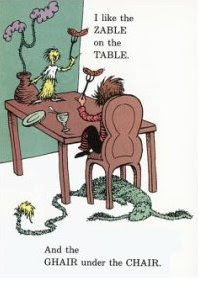I saw an interesting
news article this morning:
The Bush administration said Tuesday it will fight to keep meatpackers from testing all their animals for mad cow disease. The Agriculture Department tests fewer than 1 percent of slaughtered cows for the disease, which can be fatal to humans who eat tainted beef. A beef producer in the western state of Kansas, Creekstone Farms Premium Beef, wants to test all of its cows.
Larger meat companies feared that move because, if Creekstone should test its meat and advertised it as safe, they might have to perform the expensive tests on their larger herds as well.
The Agriculture Department regulates the test and argued that widespread testing could lead to a false positive that would harm the meat industry.
This struck me as an excellent illustration of the problem of the the impact of excessive chumra-ism. Why should I came if someone adopts a chumra, even if it is a dopey chumra. If they want to aspire to a "higher" religious level, who am I to object?
The answer is that as each individual adopts a
chumra, and advertises the fact, it impacts Jewish religious society as a whole. Once enough people adopt a
chumra, it becomes a de-facto standard, and anyone who does not conform with it is looked at as if he or she is doing wrong. Think
glatt as an excellent example of this.
One example, amongst many, that have troubled me recently. There is a custom of some for the
chatan not to see the bride the week before the wedding. As far as I have investigated, there is no
real halachic basis for this custom. People try to attribute it to the Talmudic concept of
dam chimud, but that is the fear she will have a drop of niddah blood upon the joy of becoming engaged. But here, if we would truly fear this over the joy of seeing her
chatan, we should fear it once she sees him under the
chuppa as well. Rather, it seems quite akin to the non-Jewish bridal superstition that it is bad luck for the groom to see the bride before the wedding, with some ex-post-facto rationalization based on faulty halachic reasoning.
To cite from someone's
post on mail-jewish:
To cite I have previously researched this topic and could find no source for
such a custom. I have been to weddings of Rabbi's children where the
pictures were taken before the chuppah. A Rav that I spoke to (I cannot
yet quote him without his permission) said that davka one should do so,
because the "custom" of the chattan and kallah not seeing each other for
various periods of time before the wedding, (the day of, or the week
before) is really a non-Jewish custom, and do follow it id to violate
"Chukat Goyim". Another consideration is the "tircha" (burden) placed
upon the guest who have to wait significant amount of time after the
Chuppah for the pictures to be taken, when there is no basis for this
and they could have been done earlier. As an aside (but a more
interesting thread) isn't it amazing how something with no basis has
become a "cardinal custom" of the wedding day?
Indeed, by my own wedding, consulting with Rav Schachter, I saw my
kallah beforehand and indeed took pictures beforehand. And I agree with the above that one should
davka see the bride beforehand -- to distance ourselves from the
chukkat hagoyim, to not cause
tircha to the
tzibbur, and additionally, to combat the rise of this chumra.
Why is this a good example of how
chumras spread? About two years ago, a friend of mine got married. Under specific religious influences, he and his
kallah decided not to see each other the week before the wedding.
However, some have additionally adopted the
chumra atop this not to speak by phone. If they
really really need to communicate, the
chattan and
kallah are to use an intermediary. So the
chattan speaks to the bride's sister or mother on the phone, and this relative repeats what the
chattan said to the
kallah. The
kallah replies to the sister, who repeats the words (or summarizes) into the telephone.
Now, as regards this friend of mine, a friend of a friend had taken a
chassan class with a particular
chareidi rabbi who had mentioned this custom of not even talking on the phone (but rather using an intermediary as described above if there is some need to communicate). And so, deciding that this more stringent custom must, by virtue of it being more stringent, be the really proper thing to do, they decided to adopt this custom. (Soon, no doubt, even via intermediary will be forbidden.)
The problem was that they were arranging several details of the wedding and surrounding issues themselves, and if they could not communicate, many things would fall apart. They had yet to get the marriage license, they were still looking into an apartment which they had not yet seen, etc.
And they were really willing to talk on the phone, but were worried what their friends would say, if they did not conform to the "utmost" halachic standard.
Also, because or certain time constraints, they would not be able to take pictures together because of the delay it would cause to the wedding. So they decided that they would take the pictures separately, and the photographer would
Photoshop the chassan in, making it look like they were touching. Quite silly.
Perhaps not speaking at all is an OK
chumra for some, though I think it is silly -- if everything is in order beforehand. However, once it becomes a societal standard, there are people for whom it will pose a hardship, yet they will still be pressured to conform.










